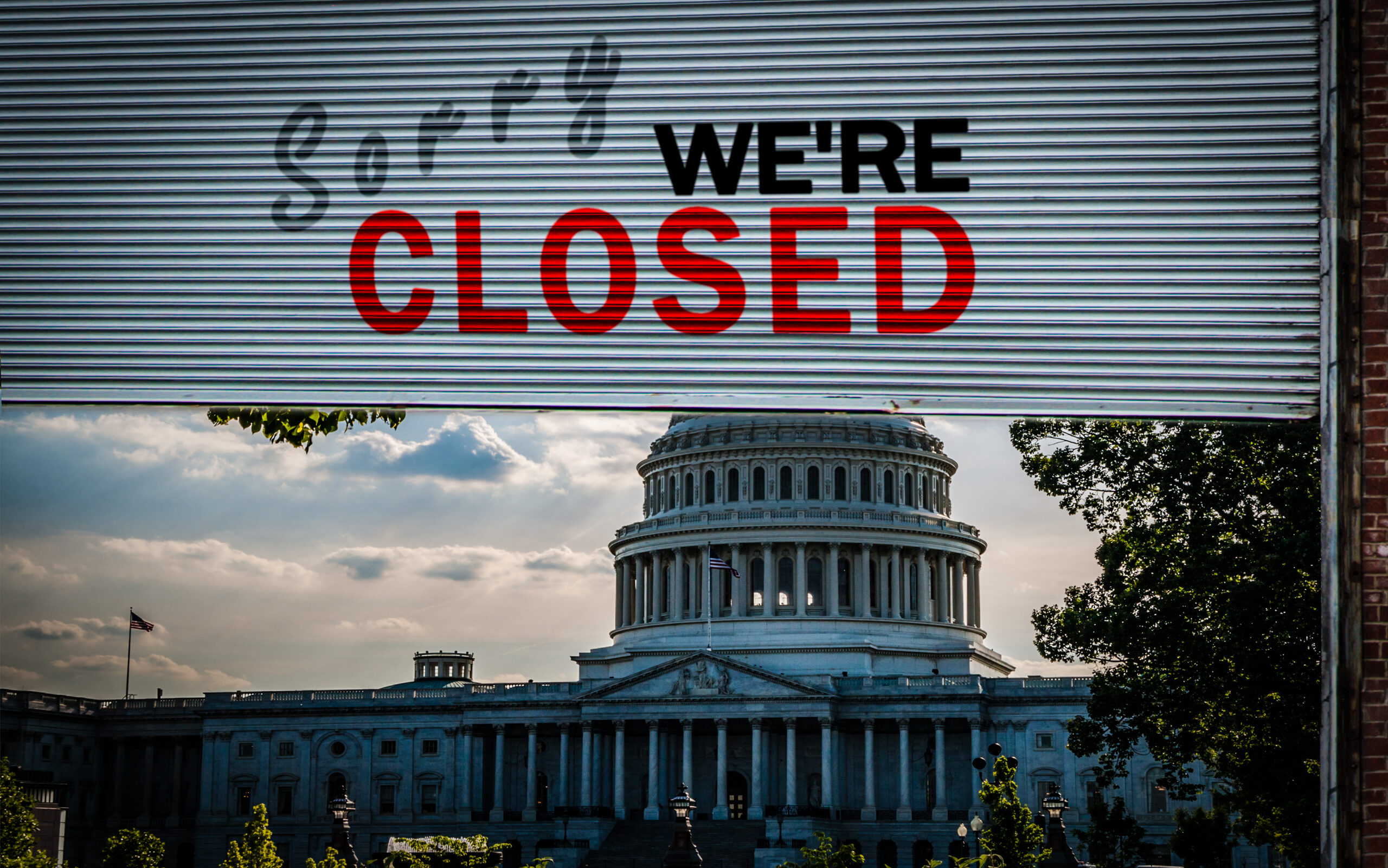[Update as of Oct. 23, 2025] A recent survey of nearly 1,500 participants in the Goldman Sachs 10,000 Small Businesses program, shared exclusively with Axios, highlights the growing concerns among small business owners as the government shutdown enters its third week. Key findings include:
- 72% of respondents emphasized the importance of policymakers reaching an agreement to keep the government open.
- 62% reported that customer demand is dropping due to economic uncertainty.
- 24% noted revenue declines because their customers are often government employees.
- 20% rely on federal agencies or contractors, and 18% depend on Small Business Administration services, including loans.
These findings underscore the ripple effects of the shutdown on small businesses, from cash flow challenges to hiring freezes, and the urgent need for resolution in Washington.
Original article published Oct. 2, 2025 begins:
How a Government Shutdown Hurts Small Businesses
On Oct. 1, 2025, the U.S. federal government officially entered a shutdown, creating uncertainty across the nation. For small business owners, this event isn’t just a headline — it’s a potential disruption that can affect everything from cash flow to customer traffic. Understanding what a government shutdown means for your operations is the first step toward navigating the challenges ahead.
This article will break down the immediate impacts you might face and outline industry-specific challenges. We’ll also explore financial management tips, available resources, and what to watch for as the situation unfolds.
What Exactly Is a Government Shutdown?
A government shutdown occurs when Congress fails to pass funding legislation to finance government operations. Without an approved budget, federal agencies must stop all nonessential functions. Essential services, such as those related to national security or public safety, continue to operate, but a wide range of other government activities comes to a halt.
The current shutdown stems from disagreements over the federal budget. When lawmakers cannot reach a compromise, funding gaps force federal agencies to furlough, or place on unpaid leave, hundreds of thousands of employees. This pause in services and employment creates ripple effects that extend far beyond Washington, D.C., directly impacting the small business community.
Immediate Impacts on Small Businesses
The consequences of a shutdown can be felt almost immediately. Small businesses, in particular, are vulnerable to disruptions in federal services and the broader economic slowdown that follows.
Delays in SBA Loans and Services
One of the most significant impacts is on the Small Business Administration (SBA). During a shutdown, the SBA cannot accept, process, or approve new loan applications for its popular 7(a) and 504 loan programs. If you were counting on an SBA-backed loan to expand, purchase inventory, or manage cash flow, you will likely face significant delays until funding is restored.
Disrupted Government Contracts and Payments
For businesses that work as federal contractors, a shutdown means an immediate stop-work order for many projects. This not only halts progress but also freezes payments for work already completed. The lack of payment can create a severe cash flow crisis, making it difficult to cover payroll, rent, and other operational expenses.
Economic Ripple Effects
The economic impact extends to businesses that have no direct ties to the government. With hundreds of thousands of federal employees and contractors furloughed without pay, consumer spending drops sharply. Local economies that rely on the presence of federal workers — from coffee shops and restaurants to retail stores and service providers — often see a dramatic decline in sales.
Industry-Specific Challenges to Prepare For
While the shutdown affects the entire economy, some industries will feel the pressure more acutely than others.
Hospitality and Tourism
Businesses in the hospitality and tourism sectors are hit hard. National parks, museums, and monuments may close, leading to canceled trips and a steep drop in tourism. Hotels, gift shops, tour operators, and restaurants in these areas will see a significant loss of revenue.
Government Contractors
As mentioned, government contractors face an immediate and direct threat. The longer the shutdown lasts, the more severe the financial strain becomes. Subcontractors further down the supply chain are also affected, creating a domino effect that can destabilize many small and medium-sized firms.
Agriculture and Food Production
The U.S. Department of Agriculture (USDA) suspends many of its services during a shutdown. This can lead to delays in farm loans, rural development grants, and some food safety inspections. For food producers and exporters, this can disrupt supply chains and create compliance issues.
Financial and Operational Strategies for Your Business
While you can’t control the political situation, you can take steps to manage its impact on your business. Focus on what you can control: your finances and your operations.
Secure Your Cash Flow
Cash is king, especially during periods of uncertainty. Review your cash reserves and create a short-term forecast to understand your financial runway. If you anticipate a crunch, take action now.
- Contact your bank. Speak with your commercial banker about a line of credit or other short-term financing options.
- Manage receivables. Follow up on all outstanding invoices to get payments in the door as quickly as possible.
- Negotiate with vendors. If you foresee difficulty making payments, talk to your suppliers. They may be willing to offer temporary flexibility to a reliable, long-term customer.
Communicate with Stakeholders
Clear and proactive communication is essential. Keep your employees informed about the situation and any potential impacts on their hours or pay. If you expect delays in fulfilling orders, let your customers know ahead of time. Transparency builds trust and can help you retain relationships through a difficult period.
Resources and Support for Small Businesses
Even during a shutdown, you are not entirely on your own. Several resources remain available to provide guidance and support.
- Local Chambers of Commerce: Your local chamber is an excellent resource for community-specific advice and networking. They often organize workshops or share information to help businesses navigate economic challenges.
- Small Business Development Centers (SBDCs): SBDCs are often hosted by universities and state economic development agencies. While their federal funding may be impacted, many continue to offer free business consulting and low-cost training.
- Private Lenders: If SBA loans are off the table, explore financing options from private banks, credit unions, or online lenders. Be sure to carefully evaluate the terms and interest rates.
What to Watch for Moving Forward
Stay informed as the situation develops. Pay close attention to news from reliable sources regarding congressional negotiations. Any sign of a continuing resolution or a full budget agreement will be the first indicator that federal operations will resume.
Monitor announcements from key agencies like the SBA and IRS for updates on when their services will be restored. Planning for a few different scenarios — a short shutdown versus a prolonged one — can help you make better decisions in the coming weeks.
Stay Proactive and Resilient
A government shutdown presents real challenges for small business owners. By managing your cash flow diligently and communicating clearly with your stakeholders, you can better position your business to weather the storm. Focus on what you can control, tap into available resources, and remember that this period of uncertainty will eventually end.






